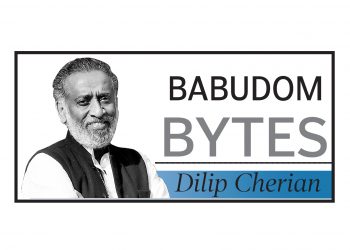The suspension of three senior IPS officers in Andhra Pradesh over the wrongful arrest of actor-model Kadambari Jethwani has sparked a debate about the misuse of power and the need for accountability. P. Sitharama Anjaneyulu, Kranti Rana Tata, and Vishal Gunni, each holding high-ranking positions in the state police, were suspended following an internal inquiry that revealed disturbing procedural failures. At the centre of the controversy is the fact that Anjaneyulu allegedly instructed the arrest of Jethwani even before an FIR had been filed. The FIR was registered on February 2, but the arrest orders were reportedly given two days earlier—an obvious violation of due process. This disregard for legal procedure raises a red flag about how some officers wield authority. Jethwani’s complaint, filed in August, accused the officers of conspiring with YSR Congress Party leader and film producer KVR Vidyasagar, who had previously lodged forgery and extortion charges against her. She claims that these charges were politically motivated, further complicating an already murky situation. This case highlights the deeper problem of political influence in policing. When law enforcement officers become entangled in political games, it erodes public confidence in the justice system. The fact that senior officials are involved only amplifies the seriousness of the issue. While the Naidu government’s decision to suspend the officers is a step in the right direction, it also begs the question: how many more such cases go unnoticed?
Union concerns or strategic merger move?
The sudden decision for Rashtriya Ispat Nigam Ltd (RINL) CMD Atul Bhatt to proceed on leave has sparked widespread speculation, creating quite a buzz in babu circles. Some connect this development to the ongoing talks around the proposed merger of RINL with SAIL. They believe that Bhatt’s departure, ahead of his retirement, is meant to smooth the way for this merger. But there are still those who are sceptical about this explanation. Mergers require patient and consistent leadership, yet Bhatt has been sent on leave before his retirement in November. This has fueled other theories. Some speculate that labour unions, unhappy with his management style, might have had a role in his exit. Others hint at potential procurement issues that could have triggered his departure. There’s also talk among insiders that Bhatt’s exit may be linked to dissatisfaction from the newly appointed Union Steel Secretary, Sandeep Poundrik, who is known for his tough stance. His recent visit to RINL might have been a factor. Regardless of the reason, Bhatt’s sudden exit has caught the attention of stakeholders across industries. This situation also echoes a recent event at SAIL, where several top executives were suspended for months, only to be reinstated after the 2024 general elections when a new ministerial team took charge.
Govind Mohan’s appointment triggers significant AGMUT reshuffle
The Union Home Ministry has carried out a major reshuffle of IAS and IPS officers in the AGMUT cadre, affecting 33 IAS officers and 45 IPS officers. This comes on the heels of Govind Mohan’s appointment as the new Union Home Secretary, succeeding Ajay Bhalla, which set the stage for significant changes at the Secretary level. While the reshuffle was expected, insiders have shared with DKB that many officers in the AGMUT cadre, particularly those posted in Union Territories like Andaman & Nicobar, Puducherry, Arunachal Pradesh, and Mizoram for over three years, were feeling uneasy. The reason? Concerns about how transfers and tenure are being handled. One of the biggest gripes is the perceived preferential treatment when it comes to rotational transfers. These policies are designed to create structure and fairness, but it’s often the exceptions that cause the most chatter. For instance, some officers have remained in Delhi with the Delhi Police or Central Police Organizations for five, seven, or even over ten years—far exceeding the usual tenure. While in some cases these long postings are within policy, in many others they seem to sidestep the rule, which has only added fuel to the fire. This inconsistency raises questions about transparency and fairness in the system. Hopefully, this reshuffle will address some of those concerns and bring about a more equitable and transparent approach.
Dilip Cherian
